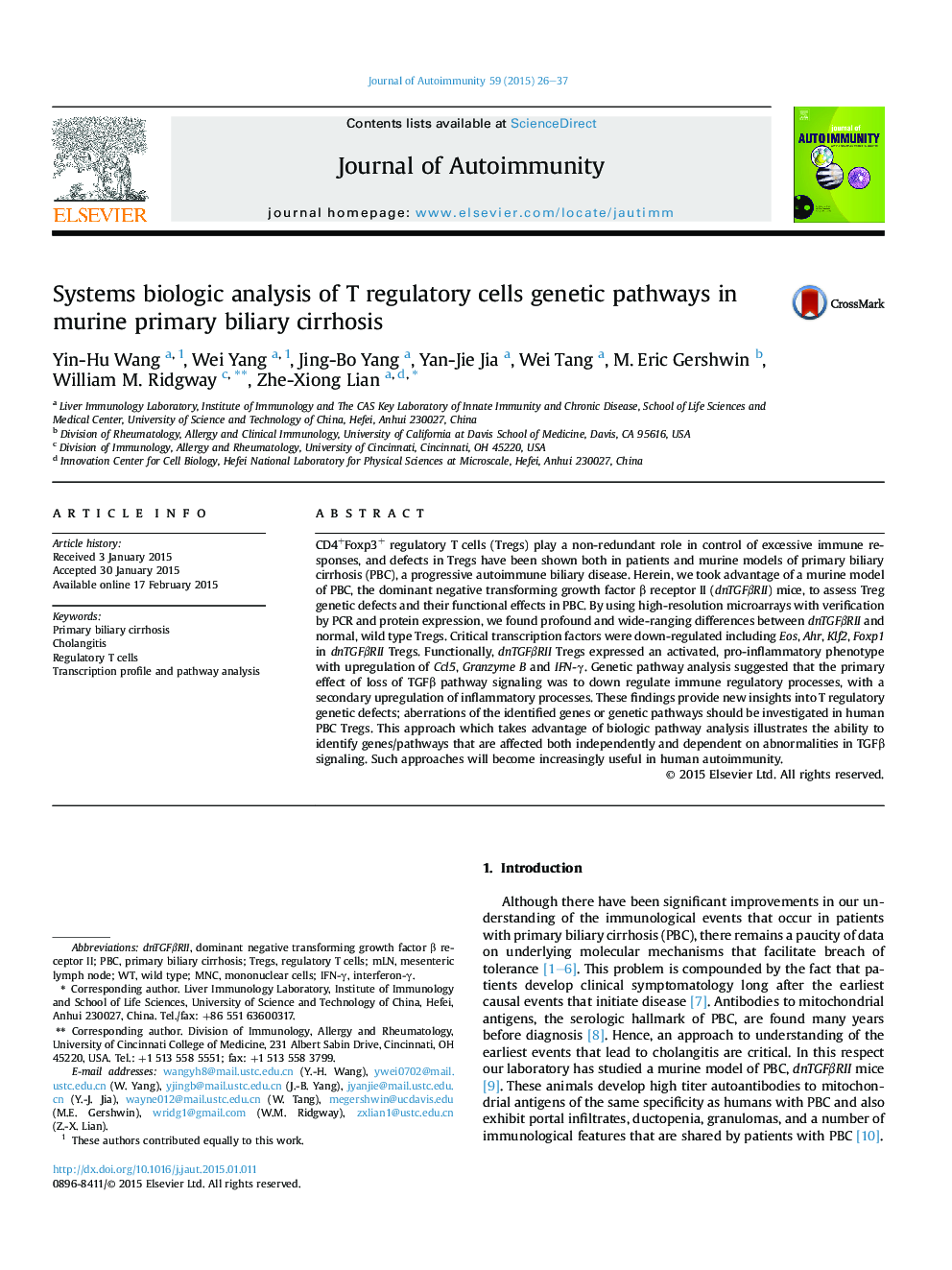| Article ID | Journal | Published Year | Pages | File Type |
|---|---|---|---|---|
| 3367721 | Journal of Autoimmunity | 2015 | 12 Pages |
•Qualitative, not quantitative defects of Tregs predominate in murine primary biliary cirrhosis.•Tregs in dnTGFβRII mice are skewed to a Th1 activation state.•Down-regulated critical transcription factors Eos, Ahr, Klf2, Foxp1 in dnTGFβRII Tregs.•Upregulation of pro-inflammatory factors Ccl5, Granzyme B and IFN-γ in dnTGFβRII Tregs.•Pathway analysis reveals both TGFβ signaling dependent and independent genes/pathways could be affected in dnTGFβRII Tregs.
CD4+Foxp3+ regulatory T cells (Tregs) play a non-redundant role in control of excessive immune responses, and defects in Tregs have been shown both in patients and murine models of primary biliary cirrhosis (PBC), a progressive autoimmune biliary disease. Herein, we took advantage of a murine model of PBC, the dominant negative transforming growth factor β receptor II (dnTGFβRII) mice, to assess Treg genetic defects and their functional effects in PBC. By using high-resolution microarrays with verification by PCR and protein expression, we found profound and wide-ranging differences between dnTGFβRII and normal, wild type Tregs. Critical transcription factors were down-regulated including Eos, Ahr, Klf2, Foxp1 in dnTGFβRII Tregs. Functionally, dnTGFβRII Tregs expressed an activated, pro-inflammatory phenotype with upregulation of Ccl5, Granzyme B and IFN-γ. Genetic pathway analysis suggested that the primary effect of loss of TGFβ pathway signaling was to down regulate immune regulatory processes, with a secondary upregulation of inflammatory processes. These findings provide new insights into T regulatory genetic defects; aberrations of the identified genes or genetic pathways should be investigated in human PBC Tregs. This approach which takes advantage of biologic pathway analysis illustrates the ability to identify genes/pathways that are affected both independently and dependent on abnormalities in TGFβ signaling. Such approaches will become increasingly useful in human autoimmunity.
